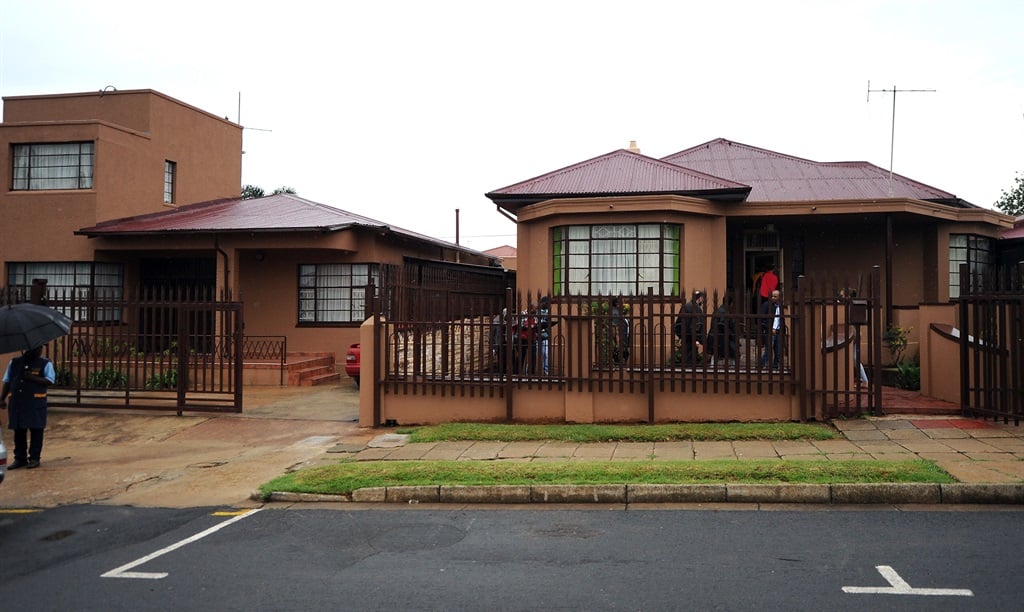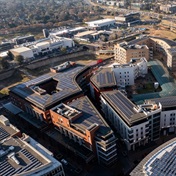
Another Life Esidimeni tragedy could be playing out, as some non-governmental organisations who care for mentally ill healthcare users claim they are not being paid their subsidies by the Gauteng health department.
This is according to the Democratic Alliance Gauteng spokesperson Jack Bloom, who conducted an oversight visit to the Takalani Home for the mentally handicapped in Soweto this week.
Fourteen patients died at Takalani Home after Life Esidimeni patients were transferred there by the provincial health department in 2017.
This transferring of patients to these non-governmental organisations, many of which did not have the required facilities or licences to house psychiatric patients, was done in order to save money.
“I visited the home to see exactly what is going on, because they were meant to have closed down after it was found that they were operating under the licence of another home, Masego Home. They went to a tribunal and they kept their licence,” Bloom told City Press.
In October 2017, health ombudsman Professor Malegapuru Makgopa’s findings were overturned by Judge Bernard Ngoepe after the ombudsman had found that the patients had died as a result of negligence at both Takalani and Masego Home, in Krugersdorp.
Makgopa had ordered both homes to be shut down after 37 patients died.
Bloom said that while it was comforting to know that Takalani was under new management, it was worrying that it had not received subsidies for the patients.
The director of the home, Judgement Gumede, said that they were surviving on donations from the public.
“We basically put out a call to the public and some donors have come through to provide food and other basic essentials, but it is not enough. Each patient receives a different amount from the state, depending on their needs,” Gumede said.
He said that the department of health had stopped paying the subsidies because of a service level agreement that needed to be signed by the home, as well as other things such as a licence adjudication process through which the home needed to go.
All these organisations now needed to comply with a new licensing process, which was gazetted in March this year by Health Minister Dr Aaron Motsoaledi.
As per the requirements, the department has outlined a stringent process which organisations needed to follow, including the care that patients should receive, and the facilities in which they are treated and cared for.
Some of the specifics that a daycare or home would need to adhere to, according to these guidelines, include that “the layout and design of the residential care facility must provide for sleeping areas, residential caretaker sleeping area, ablution, rehabilitation and recreation room, dining room, family visits room, medical procedures room, food storage or pantry, cooking area or kitchen, laundry, refuse storage area, storeroom, reception and administrative office”.
In terms of the guidelines of the issuing of licences, the South African Mental Health Federation said that “the requirements are so strict and onerous that the vast majority of these organisations will not be able to comply with them without considerable additional funding and subsidies”.
“There is no evidence that government has, in any way, taken cognisance of the needs of non-governmental organisations.
"Instead, they have devised the said guidelines in a seemingly knee-jerk reaction with no regard to what is actually needed to provide proper care to the mental health care users concerned.
"The guidelines are so stringent in nature that it is clear that the state was merely trying to evade future liability regardless of the impact their actions would have cascading downwards to the mental health care user,” Nicole Breen, Project Leader at the SA Mental Health Federation told City Press.
Lesemang Matuka from the Gauteng health department, admitted that “a few of the guidelines do not seem to be attainable” and the provincial department was in the process of engaging with the national health department about it, but he was adamant that the department was on top of things and had consulted with the organisations.
“Most of our non-governmental organisations progressed well in obtaining the documents from the municipality offices. The department doesn't foresee that most of the organisations will not be able to comply and will have to be closed down,” he said.
Breen suggested that the department should be setting aside money to help the the organisations adequately upscale their facilities.
“Bylaws are different in every municipality. The government should develop guides for non-governmental organisations in every jurisdiction so that they know what is required in their area.
"The service users being cared for by these organisations do not require the same level of care as those in hospitals, but still require care – care which the government is duty-bound to provide.
"This care must be given while allowing the service user to live close to his or her community – something for which the state must provide,” Breen said.
Another organisation, San Michele Home, which operates in Brakpan, had also not been paid its subsidy for the last two months.
Administrator of San Michele, Marius Bosman, told City Press that the department of health was basically holding it hostage to terms and conditions in their service-level agreement, which had been issued to all the registered non-governmental organisations, which care for mentally ill healthcare users.
“We are reluctant to sign because the department can basically do whatever they want. If you don’t sign, they don’t pay you,” Bosman said.
San Michele currently cares for 200 patients, and Bosman said that they hadn’t been paid for the past two months.
“The new payment system works in a way in which you generate the costing in month one, you put in your claim in month two and you only get paid in month three.
"It just doesn’t make sense because you only receive your subsidy two months after you submit your claim,” he said.
Bosman told City Press that he has had to ask his suppliers for extensions for their payments as a result of this.
“In the service level agreement, it stipulates that you are not allowed to accumulate funds.
“So if you are in excess of funds, you either have to pay it back to the department or they deduct it from the next subsidy payment to you. So how are we supposed to operate without money in our account?” he said.
San Michele, like Takalani, has also put out calls for donations from the public in order to still provide adequate care to its patients.
“The department should be assisting non-governmental organisations to comply with the service level agreement, but has mismanaged this badly and many organisations are struggling and might have to close,” Bloom said.
Matuka said that organisations had been preparing for the guidelines since last year. He added that workshops were held with the organisations on the guidelines, on how to manage such an organisation, and on the care of psychiatric patients. Matuka said that more workshops would be held in preparation for implementing the guidelines, which were expected to be implemented by the end of September.
Matuka said that non-governmental organations were paid in April for invoices submitted for services delivered in March. “Those whose service level agreements are not signed, or where their concerns around any of the stipulations were not completely clarified could be owed the subsidy for April only.”
He added that the department had ensured a “ring-fenced budget” for subsidising non-governmental organisations. Last year, a 20% increase had been approved, and another increase had been approved for the 2018-2019 year.
“These organisations are allowed to claim the social security grants of the patients in their care and are encouraged to raise funds on their own. Sponsor such as Woolworths support many of these organisations by providing food and other perishables,” Matuka said.




 Publications
Publications
 Partners
Partners








